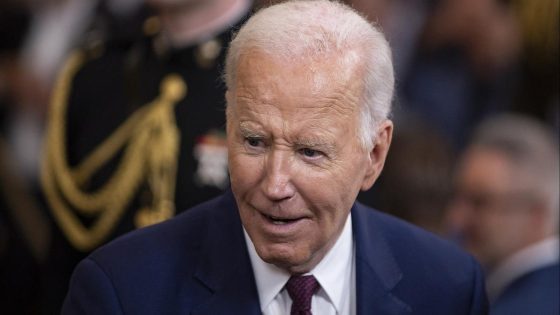Secretary of State Antony J. Blinken warned on Monday that a malicious “flood” of disinformation was threatening the world’s democracies, fueled in part by the swift rise of artificial intelligence, which he says sows “suspicion, cynicism and instability” around the globe.
Mr. Blinken spoke in Seoul at the Summit for Democracy, a global gathering organized by the Biden administration, which has made countering the authoritarian models of nations like Russia and China a top priority.
Mr. Blinken, who as a young man worked briefly as a journalist, said that changes to the international flow of information may be “the most profound” that he has experienced in his career, and that anti-democratic forces were exploiting those changes.
“Our competitors and adversaries are using disinformation to exploit fissures within our democracies,” he said.
He noted that countries totaling nearly half of the world’s population, including India, will hold elections this year under the threat of manipulated information. He did not mention the United States’ presidential election in November, which many analysts say could be influenced by foreign-directed information campaigns like the one Russia waged in 2016.
The U.S. promotes “digital and media literacy” programs abroad to help news consumers judge the reliability of content, Mr. Blinken said. But he cautioned that American adversaries were clever about laundering their propaganda and disinformation. China, for instance, has purchased cable television providers in Africa and then excluded international news channels from subscription packages, he said.
And increasingly powerful generative A.I. programs, Mr. Blinken said, can “fool even the most sophisticated news consumers.”
The State Department has urged social media platforms to take more action, including by clearly labeling A.I.-generated content. Meta, the parent company of Facebook, announced such a plan last month for content posted on Facebook and Instagram.
But experts at the conference said the challenge was enormous. Speaking on the subject later in the day, Oliver Dowden, the deputy prime minister of Britain, cited the example of an A.I.-generated image of Pope Francis in a puffer jacket that drew wide attention last year.
Mr. Dowden said that even though he understood that the image was fake, he retains a mental association between the pope and puffer jackets. Such images “influence your perceptions” subconsciously, he said.
Mr. Blinken spoke days after a new report commissioned by the State Department and released last week warned that artificial intelligence presents the world with “catastrophic risks.” The report said that an A.I. system “capable of superhuman persuasion” could undermine the democratic process.
It also cited an unnamed prominent A.I. researcher’s concern that “the model’s potential persuasive capabilities could ‘break democracy’ if they were ever leveraged in areas such as election interference or voter manipulation.”
Mr. Blinken discussed the threat of commercial spyware, which he said several governments had used to monitor and intimidate journalists and political activists. He said that six countries — Finland, Germany, Ireland, Japan, Poland and South Korea — were joining a U.S.-led coalition to ensure that commercial spyware “is deployed consistent with universal human rights and basic freedoms.”
President Biden issued an executive order a year ago barring the U.S. government from using commercial spyware, though not similar tools built by U.S. intelligence agencies.
This week’s Summit for Democracy is the third installment of a forum started in 2021 by Mr. Biden, who said during his State of the Union address this month that “freedom and democracy are under attack both at home and overseas.” The meetings are intended to help other nations promote best civil society practices and defend against political sabotage.
Mr. Blinken’s visit to Seoul occurred as North Korea conducted its latest test launch of several short-range ballistic missiles. The launches came days after joint U.S.-South Korean military exercises that North Korea denounced as provocative.
Mr. Blinken did not mention the launches in his public remarks, although the State Department condemned them.
Matthew Miller, a department spokesman, also said in a statement that Mr. Blinken and the South Korean foreign minister, Cho Tae-yul, discussed “Pyongyang’s military support for Russia’s war against Ukraine” and North Korea’s “increasingly aggressive rhetoric and activities.”
Source Agencies



